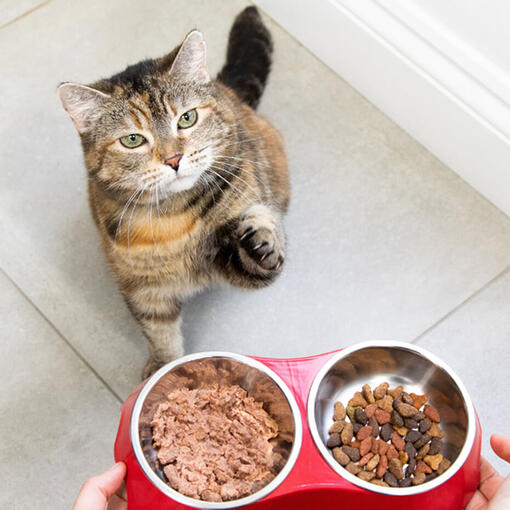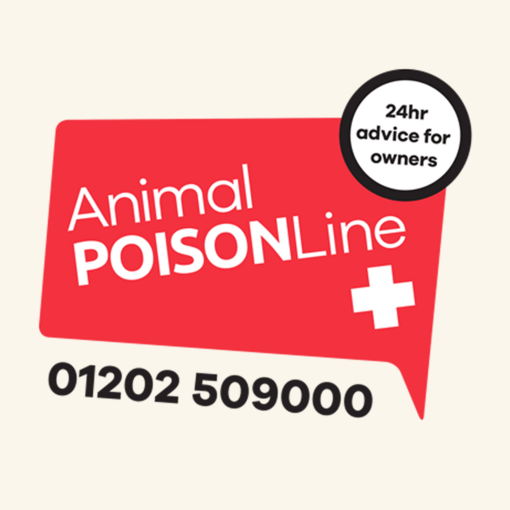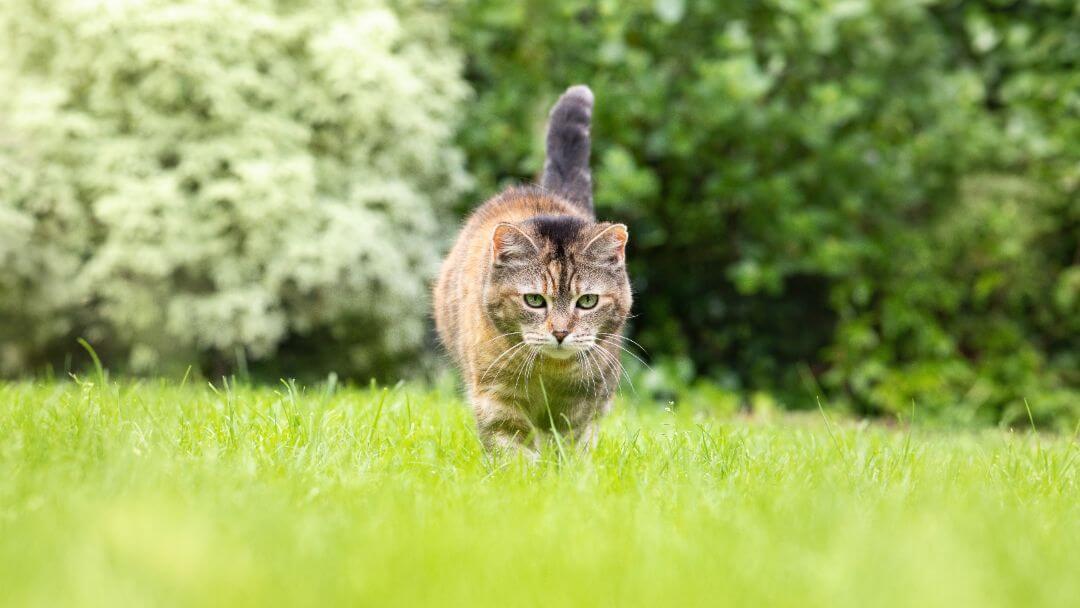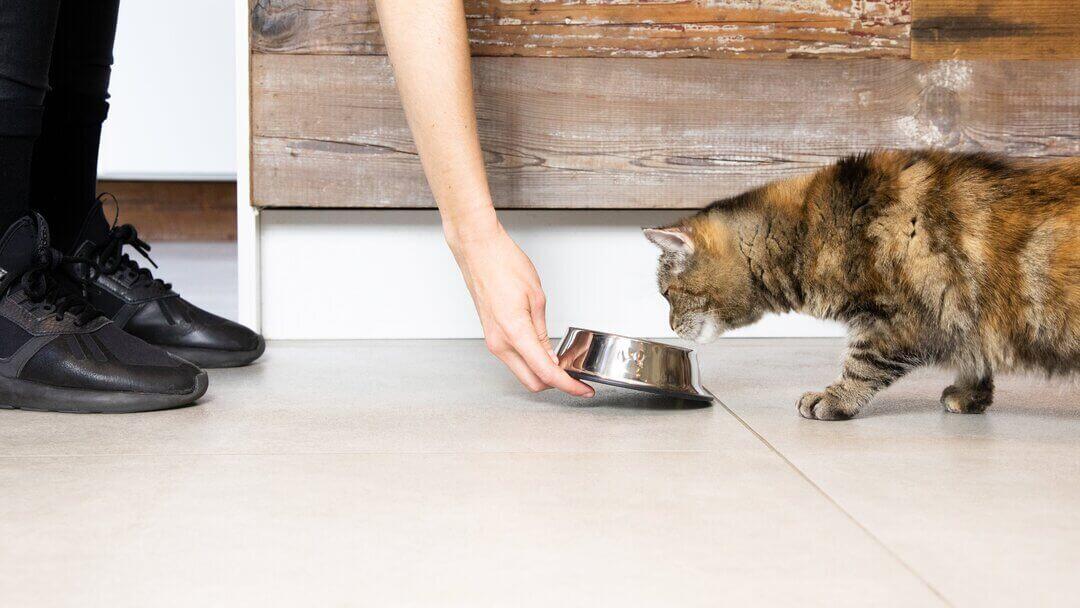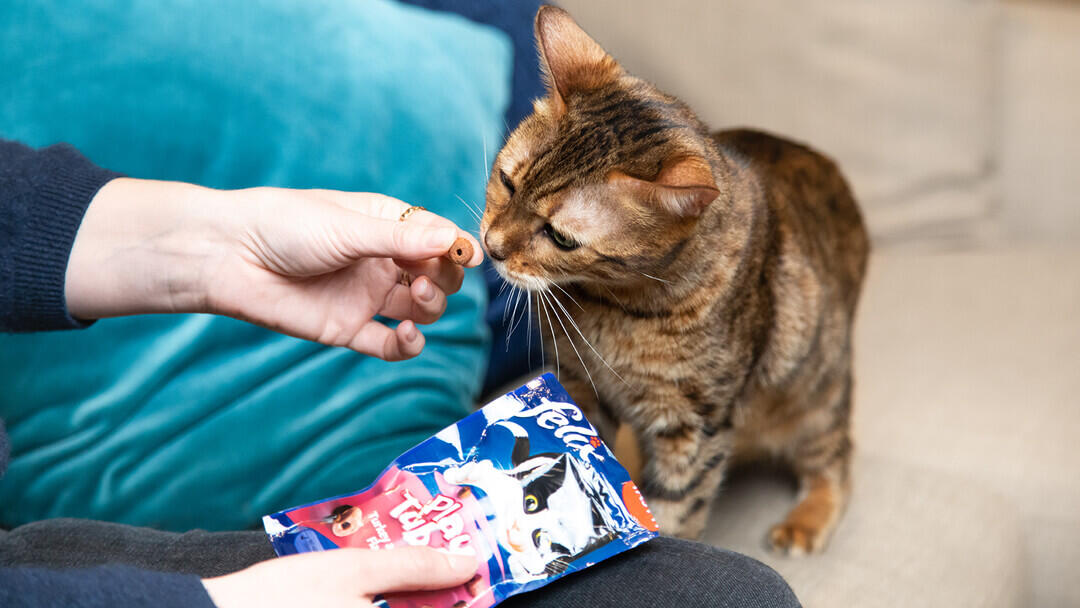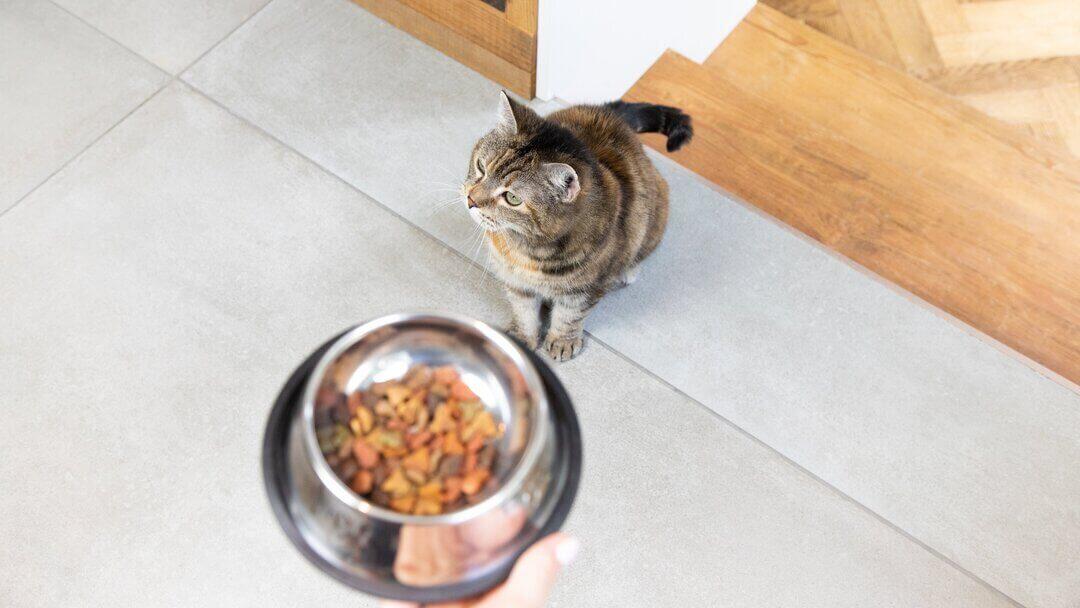
We all know that chocolate is not so sweet a treat for dogs, so you may also wonder “can cats have chocolate?” Unfortunately, the same rule applies to our feline friends, as chocolate is both toxic and potentially deadly for cats, with just a small amount being enough to cause severe health issues.
If you suspect your cat has eaten chocolate, seek immediate veterinary attention.
Is Chocolate Poisonous or Deadly for Cats?
It's a common misconception that everyone in the family can enjoy this tempting human treat, but chocolate is toxic for cats and dogs. It contains theobromine and caffeine; substances that can cause serious health problems, including vomiting, diarrhoea, seizures, and in severe cases, death. Keep reading to find out more about why chocolate is dangerous for cats, and the signs to look out for if you suspect your cat has eaten some.
Why Chocolate is Dangerous for Cats
Chocolate is toxic to cats due to two key ingredients:
- Theobromine: This is the primary culprit in chocolate poisoning. It can cause a range of symptoms, including vomiting, diarrhoea, increased heart rate, tremors, seizures, and even death in severe cases.
- Caffeine: While less potent than theobromine, caffeine can still contribute to chocolate’s toxicity to cats. It can cause restlessness, rapid breathing, and heart palpitations.
Unlike humans, cats cannot metabolize theobromine and caffeine efficiently. This means that these substances build up in their system, causing significant harm.
The Toxicity Level Varies by Chocolate Type:
- Dark Chocolate: Contains the highest levels of theobromine and caffeine, making it the most dangerous for cats.
- Milk Chocolate: Less toxic than dark chocolate but still dangerous due to its theobromine content.
- White Chocolate: Contains the least amount of theobromine and caffeine, but it's not entirely safe and can still cause gastrointestinal upset.
Dosage: How Much Chocolate is Too Much for Cats?
The severity of chocolate poisoning in cats depends on the amount ingested, the type of chocolate, and the cat's size. Even a small amount of dark chocolate can be harmful, while larger quantities of milk or white chocolate can also cause serious health issues.
As a general rule, the smaller the cat, the smaller the amount of chocolate needed to cause harm. For example, a small amount of dark chocolate can be fatal to a kitten.
It's important to remember that any amount of chocolate can be dangerous for cats, so it's best to keep chocolate well out of their reach.
What Happens if Cats Eat Chocolate? What are the Symptoms?
If your cat ingests chocolate, they may experience a range of symptoms, including:
- Digestive Upset: Vomiting and diarrhoea are common early signs of chocolate poisoning.
- Nervous System Issues: Restlessness, tremors, and seizures can occur as the toxins affect the cat's nervous system.
- Heart Problems: Increased heart rate and abnormal heart rhythms can be serious complications.
- Severe Cases: In severe cases, chocolate poisoning can lead to a coma and, sadly, death.
The severity of these symptoms usually correlates with the amount of chocolate eaten, as mentioned above.
How Long After a Cat Eats Chocolate Will Symptoms Show?
Symptoms of chocolate poisoning usually start to appear within 6 to 12 hours after ingestion. However, this timeline can vary based on several factors, such as the type and amount of chocolate that was eaten, alongside the size and health of the cat.
When to Seek Veterinary Help
Immediate veterinary attention is crucial if your cat has eaten chocolate – or even if you suspect they might have done. Your vet may induce vomiting, administer activated charcoal to absorb toxins, and provide supportive care such as IV fluids and medications to manage symptoms. The recovery time varies depending on the severity of the poisoning and the promptness of treatment.
Alternative Treats to Chocolate
To keep your cat safe, there are plenty of cat treats and snacks that are non-toxic and that they will find delicious, such as:
- Cooked Chicken or Turkey: Plain, cooked chicken or turkey without any seasoning is a safe and tasty treat for cats.
- Canned Tuna or Salmon: In moderation, cats love the taste of canned tuna or salmon. Make sure it's packed in water, not oil or brine.
- Cooked Eggs: Small pieces of cooked eggs (scrambled or boiled) can be a good source of protein for cats.
- Cheese: Some cats enjoy small amounts of cheese. Opt for low-lactose varieties like Cheddar or Swiss.
- Blueberries: Fresh or frozen blueberries can be a fun and nutritious treat for cats.
- Green Beans: Cooked green beans are a crunchy treat that some cats enjoy.
- Cat Grass: Growing cat grass at home can provide a safe and enjoyable treat for your cat to nibble on.
- Freeze-Dried Meat Treats: Freeze-dried chicken, turkey, or fish treats are often a hit with cats and are nutritionally beneficial.
- Catnip: Many cats go wild for catnip, which is completely safe and can be a great treat.
Tips for Avoiding Accidental Chocolate Consumption
- Store Chocolate Safely: Keep chocolate and other toxic foods for cats out of your cat's reach. This usually means safely stored in a closed container. At Christmas, avoid decorations made of wrapped chocolate
- Educate Your Household: Ensure everyone in the home knows the dangers of chocolate for cats.
- Stay Alert: Be vigilant during holidays and social events when chocolate is more likely to be present.
Chocolate is a delicious treat for humans but a dangerous toxin for cats. While there are some human foods that cats can safely consume, chocolate is not one of them. By understanding the risks and taking preventive measures, you can keep your feline friend safe and healthy.


